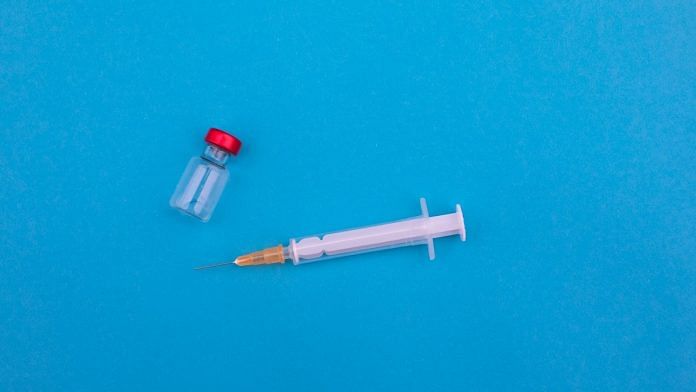New Delhi: A panel under the country’s drug pricing agency, the National Pharmaceutical Pricing Authority (NPPA), has flagged that the injectible version of a popular painkiller — ibuprofen — may have been launched by three companies at arbitrary rates and used in hospitals across Delhi-NCR.
The multi-disciplinary committee (MDC) of pharmaceutical experts under the NPPA, over the past few months, examined the case, and has said that the drug formulation was being sold in the market by Cipla, Hetero and Sandor at a price ranging from Rs 26-74 per vial.
The minutes of the panel meeting, which were sent to the NPPA last month and have been seen by ThePrint, noted that the ceiling price of injectable diclofenac, another pain-reliever commonly used for hospitalised patients, had been fixed at Rs 1.63 per vial.
The minutes also suggested that since both ibuprofen and diclofenac are in the same category of medicines — analgesics, antipyretics non-steroidal anti-inflammatory drugs (NSAIDs) — the same price (Rs 1.63) should apply to ibuprofen 100 mg injection/infusion.
ThePrint reached the three companies by email for comment on the matter.
A Cipla spokesperson said the firm had complied with all the necessary regulations, and the same was being conveyed to the NPPA and the committee.
“Cipla has complied with all the necessary regulations. We have not launched the said product without approval,” the spokesperson added.
No response, however, had been received from Hetero and Sandor by the time of publishing this report. This article will be updated when a response is received.
Also Read: 4 patented HIV, hepatitis & TB drugs now on govt price control list. Controversial ranitidine cut
Drug classification in India
In India, drugs are categorised under the ‘scheduled’ and ‘non-scheduled’ classes, in line with the Drugs and Cosmetics Rules, 1945. Their pricing formula is governed in line with the Drug Price Control Order, 2013.
The ceiling prices of the scheduled drugs, included in the National List of Essential Medicines (NLEM), are fixed by the NPPA every year.
Drugs included in the NLEM, which is revised periodically, are some of the commonest medicines used in the country and are mostly used in government-run health programmes, apart from being available privately.
Scheduled drugs comprise 17-18 per cent of all the drugs marketed in India, according to industry estimates.
All the drugs that are not included in the NLEM are categorised as ‘non-scheduled’. Whenever a new non-scheduled drug is launched in India, its maker needs to get their launch price approved by the NPPA. In some cases, their makers are asked to justify the price at which they are being launched.
A source in the NPPA said that while three formulations of ibuprofen — tablets in the dosage strength of 200 and 400 mg and oral suspension of 100 mg/5ml — are included in the NLEM, the injectable form is not explicitly included in the list of essential medicines.
Data from companies, hospitals sought
The minutes of the MDC meeting also said that the panel had sought details from the companies and 10 hospitals in Delhi-NCR — including the All India Institute of Medical Sciences, RML Hospital, Amrita Hospital, Lok Nayak Hospital, G.B. Pant Hospital, Fortis Healthcare, Apollo and Max Hospitals — on the usage of the medicine.
“The committee deliberated on the data received from the hospitals and the companies and recommended to examine the launch of ibuprofen injection by Cipla, Hetero Healthcare Limited and Sandor Medicaids Private Limited without price approval from NPPA for retail price of new drug as per Drug price Control Order, 2013,” the minutes said.
The panel has also sought a response from Cipla on whether there is any therapeutic advantage to giving an ibuprofen injection vis-a-vis a diclofenac injection in terms of efficacy, safety or any other terms.
It has also asked the company what the cost of treatment will be if an equivalent dose of the diclofenac and ibuprofen injections is used in any therapeutic indication.
It is not clear why the committee has not sought the responses from Hetero and Sandor.
Pharmaceutical expert S. Srinivisan, who is attached with the All India Drug Action Network, a patient rights group, said that drugmakers sometimes launch different formulations of a drug included in the NLEM to circumvent the price restrictions.
“Different formulation or dosage strength of the same drug included in the NLEM allows companies to bypass the price restrictions fixed for other formulations of the same drug,” he said.
Srinivasan, however, added that the details related to rationality, safety and efficacy are under the purview of the Central Drugs Standard Control Organisation, and not the NPPA.
Also Read: Inside India’s shadow pharma industry — dingy drug units, cash payments, poor inspection



